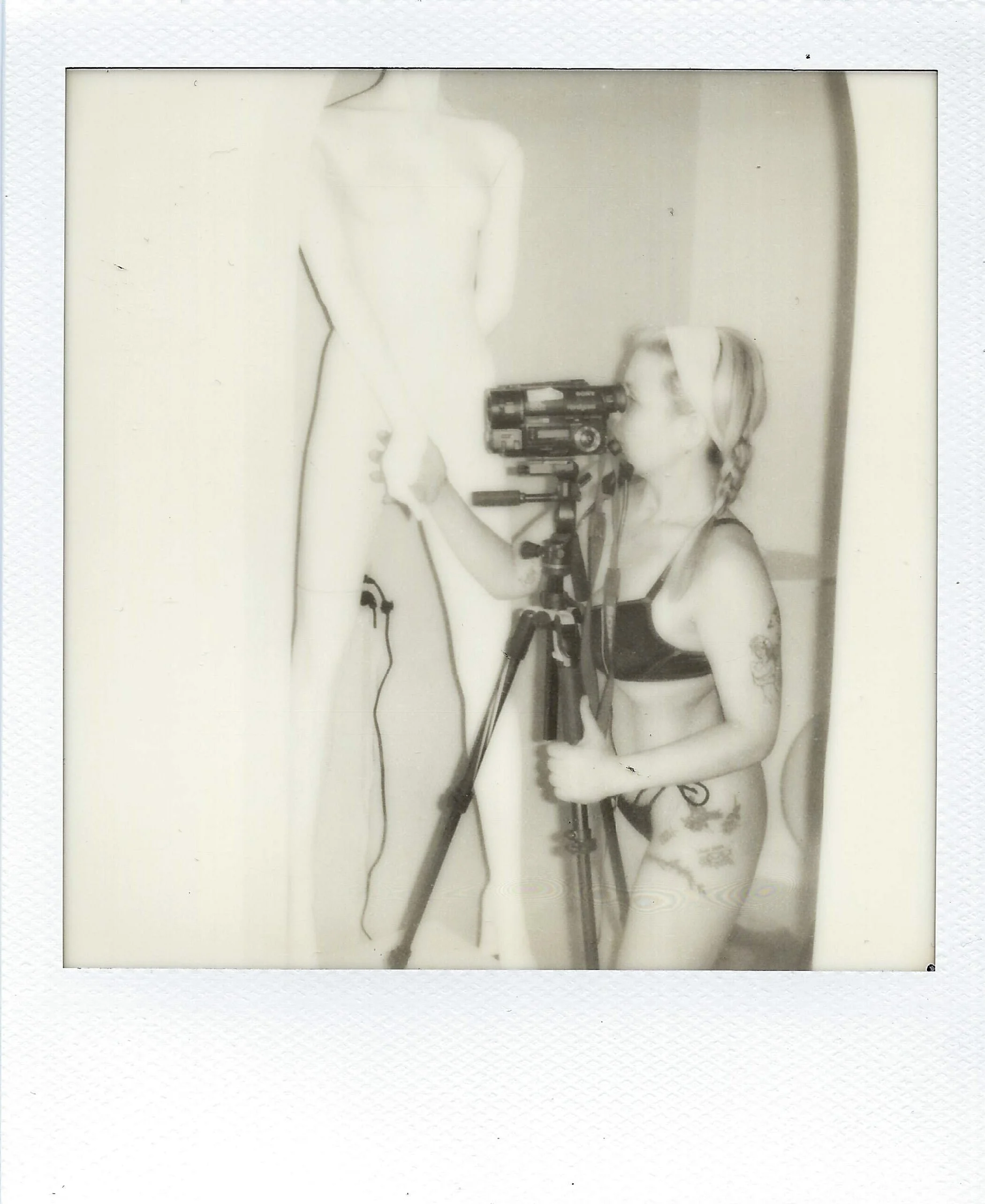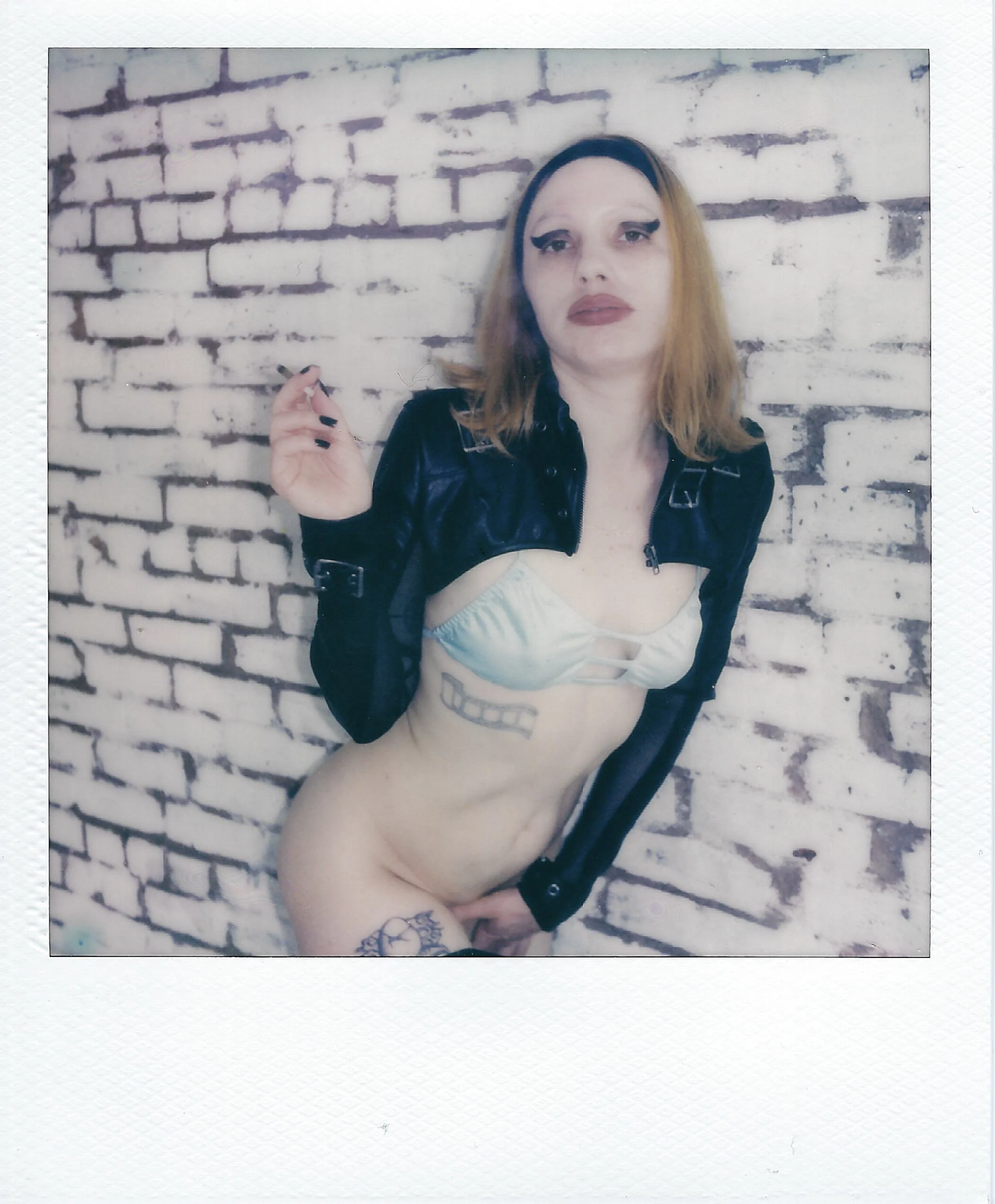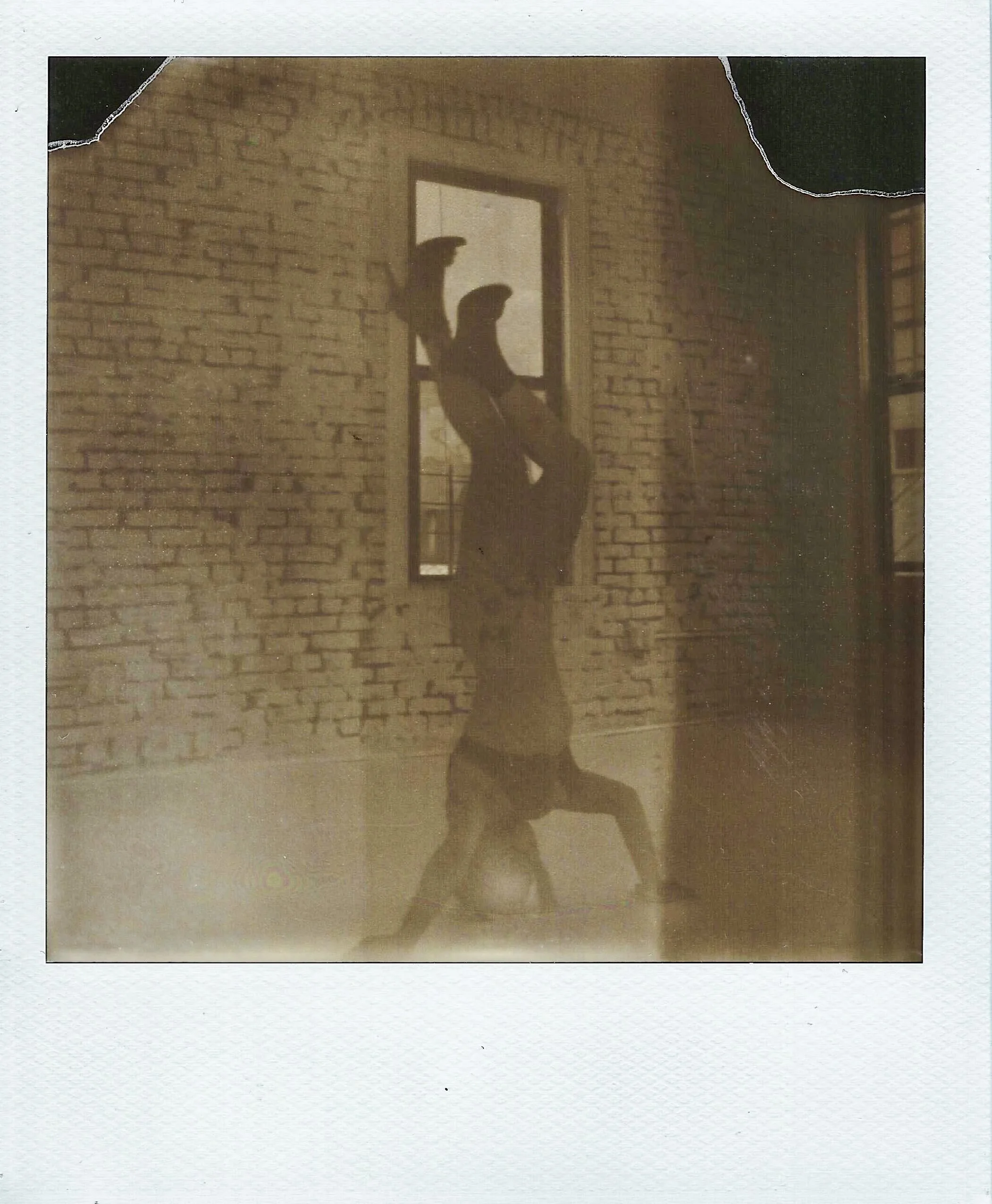Samantha Sutcliffe and Luisa Opalesky on Photography, Collaboration and Autoerotica
Make it stand out
Often, your friends end up being your greatest creative inspirations and collaborators, and that’s certainly the case for photographers and filmmakers Samantha Sutcliffe and Luisa Opalesky. Having worked together and been the subjects of each other’s work for almost a decade, they share an intimate creative language and a frame of reference that takes in everything from mutual favourite movies to random nights at a bar five years ago.
Their relationship, based on a “spontaneous and mischievous" style of working, is a true testament to the ways in which many of the best friendships inspire us. Here, the two photographers allowed us a peep into their private world, for a special wide-ranging conversation in which they discussed everything from their longtime collaboration and historic work together, to ballet and David Lynch.
Luisa Opalesky: I just was thinking that we have so many photographs of each other from the past decade, and I feel like the last shoot that we did a couple weeks ago when we linked up, they’re my favourite ones. I thought we could talk about the organic nature of us linking up and taking pictures.
Samantha Sutcliffe: I feel like I don’t have many images of myself other than what you’ve taken. I don’t like being in front of the camera and I was thinking about how you make me so comfortable in front of the camera. It’s nice to have a bunch of images but I feel like we both don’t like to plan.
I don’t have many people that I can… it’s like a really nuanced idea of feeling safe with somebody and also wanting to do something kind of dangerous. I feel like most people and most artists that I know, the chemistry is just off in some way. I just think it’s really fucking sick when you can vibe with someone enough to not be on your own shooting with somebody and you feel safe enough to do some things that… you know, you can collaborate instead of being on your own. So yeah, I think the Polaroid camera was like a really sick way to make it feel secretive in a way. There is only one version of those photos. I wanted to ask you about why you don’t like being photographed?
So, I was thinking about this yesterday. As you know I returned back to dancing this past year – I was a dancer from age four until 16 or 17 and it wasn’t until recently that I made the connection between how I was forced to perform in front of people and how it really just felt like a humiliation ritual and I think that is the root of it.
That I had to be on stage when I didn’t want to and people had to look at me at a really early age, just being uncomfortable and being kind of put in that situation… I don’t like to be looked at but I like when you look at me. I think I’m really stemming it back to having to dress up in these horrendous outfits with a big group of people. When I’m with you it’s one on one and it just feels way more comfortable.
Do you think part of the reason you maybe unconsciously hated it so much was because it was so planned?
Probably, exactly, yeah totally.
It’s why we all hate school too – it’s so unorganic, there’s such a schedule. That’s how we have to exist in the world. But I just think, again, it’s really unique that we can have space and just link up. Even if I haven’t seen you in like 5 years or 3 years or something, it’s just there and it almost doesn’t need to be explained because it’s so animalistic or something. You just roll up and you know who your fucking people are.
I guess I was thinking about how interesting it is that you don’t like to be in front of the camera but you had that performer upbringing and foundation. I kind of felt like I was performing from a really young age for my mom. She would always say, ‘Do this impression, do this, do this’ at the top of the stairs and I would like fall down the stairs when I was like three because I was dancing so hard and I loved, it and I think that I felt like that was like a love language. To perform for my mom and perform for you know, like whatever, the librarian – she would have me come into the library with my tap shoes and I would tap all over the library.
But I think it’s all about the way in which we experience that – you know if I had to be on a stage I probably would have so much stage fright and hated it to death. I love to be photographed but again, it was not structured growing up.
It seems like it was like a loving exchange and you were doing it for someone that you were comfortable with, versus a more kind of transactional thing because if you think about it, it's like with dance class, your parents enrol you and there’s an expectation and if you don’t make it then you get in trouble, versus there being a safe exploration. With ballet and with dance, and like that type of movement, behind it all, it’s really gritty, kind of disgusting, kind of wounded.
The pattern is almost like abuse in a way that's safe. You know, it's kind of like in Black Swan – that’s the only, it's the only movie on ballet that I can really think of that has that, like sinister, dark, like very raw, brutality to art that we don't see when we go to the the Lincoln Center to see, you know, Swan Lake or something. I think it's super gorgeous to actually see those battle wounds that these dancers have to deal with all the time. I'm sure your feet are all cut up – what does a dancer's feet look like in their 60s? You know, all of that. You know, the bones changing and everything like, it's, it's very like, Cronenberg. It's super gorgeous, but we don't see it enough.
It’s funny because I would like beg and beg for my parents to put me in something. All I wanted to do was gymnastics, rather than dance. I had a ballet phase but I always thought I wasn’t a ballerina. I was just so fucking aggressively into sports that I thought “OK, gymnastics is the way,” but it was always so expensive that they were like “No, we’re gonna send you to rowing camp.” It’s just interesting, like where to put your kid in the summer, what to do with your kid after school. Just another reminder to not have children.
Yeah, just have dolls instead.
OK, so we have such a great segue here. When I see a mannequin head or when I see a mannequin naked body or a clothed mannequin body, it literally is so pleasurable for me to imagine what I can do. I’ve always collected mannequin heads, I have mannequin heads all over my apartment. I know you have some background with dolls and Rosalind Fox Solomon’s doll series. So we have to talk about her because she just passed yesterday and she was inspiring to both of us.
I was just looking at her images of animals, I think she is my favourite photographer. I feel like I’ve been thinking a lot about who I was as a child recently, and I think maybe it’s because I’m getting older but you know, one of the things is dolls. I’m going to start learning how to make rag dolls now, just kind of returning back to this playfulness of things. Just like a return of innocence, because so much of my life has been rebellion and kind of moving away from who I was when I was younger and now I feel like I’m returning to it and it’s just way more interesting. But I feel like with the mannequins it’s like the mannequin or the doll is an object so it has no mind so we’re completely in control of it and we project whatever it is that we want on to it – I feel like a lot of people are returning to inanimate objects for love or you know with AI as well. Because, we are able to hear what we want to and we don’t have anything like challenging us.
And also women kind of like changing their appearances more than ever. So into more like doll features. You know, we could name like 100 people right now, they all look like they went to the same surgeon.
That’s a good point, I guess it’s kind of like a negative thing actually that having these objects resemble what people are “supposed” to look like. That's a negative thing. But, maybe it’s more so that it’s this safe object. That could be an aspect of it. When I’ve shot with mannequins I’ve realised that I’m way more comfortable being on top of this object than I am on a human being and I think that that’s actually really interesting and says a lot not necessarily about society but about me maybe.
I’m seeing also a lot of sculptures. Even photographers that are cloning themselves into a sculpture but it’s hyper realistic. You know I think it’s instinctual, I think it’s natural to want to step outside yourself and have your face in a physical, materialised object or whatever it is it’s constantly just us looking at ourselves, you know outside of the phone, outside of the picture we have of ourselves so its kind of freaks me out for sure. I definitely don’t want a mannequin that's a replica of me, even a cardboard cut out. I would stab it if I had it in my house. I would like torture it or something.
I think it’s definitely autoerotica, the idea that we want a clone.




